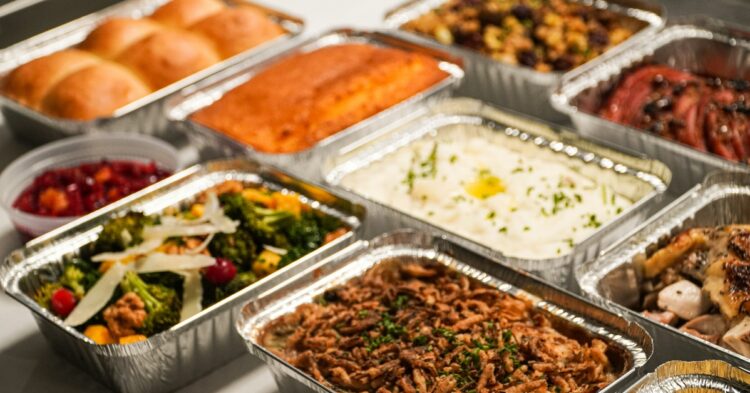Food is a big part of Thanksgiving celebrations every year, as the family comes together to share what they are grateful for. However, awkward moments may sometimes arise during family gatherings.
One woman refused to eat her sister-in-law’s sweet potato casserole after she suspected the dish was leftover from the previous year. This upset her sister-in-law to no end.
The woman wrote asking for an opinion
She started by explaining that her family is a large one. With more than 20 people attending the family gatherings, it can be overwhelming for the person hosting the gathering.
Sharing what happened on Thanksgiving, she began by explaining that they usually communicate to bring different dishes.
The sweet potato casserole was mentioned
As they were deciding who would bring what, the woman’s sister-in-law mentioned she’d bring her mom’s “famous sweet potato casserole,” which initially excited the poster.
This was a nice way to pay tribute to the sister-in-law’s mother, as she had passed away recently.
The casserole looked off to her
Despite this, she believed her sister-in-law had brought the previous year’s leftovers as she had brought them in “several small and medium containers.”
The woman admitted that the dish smelled not bad but was quite dry and looked different. She didn’t eat from it and told her husband to do the same.
The mother said the author was picky
This also caused an argument with the poster’s mother, as she called her afterward, telling her the sister-in-law complained that she didn’t try the dish.
After hearing her daughter’s reasons, the mother said she was picky and that a frozen casserole would not even last a year without developing mold.
The poster shared that she feels bad
Awkwardly, the poster told her mother that the small containers could have meant her sister-in-law only brought the good parts and cut out the mold.
There was an awkward silence after the poster shared her theory. The poster said she felt bad for her sister-in-law but couldn’t eat the dish because she was unsure.
Unresolved pains could cause conflict
As the mother only found out through the sister-in-law’s complaints about the author not trying the dish, keeping off her late mom’s meal likely triggered her grief.
Family therapist Vienna Pharaon explains that unresolved grief can trigger family arguments.
She explains that one could easily be triggered
In talking with CNBC, Pharaon said, “All it takes is one look, one complaint, or that one comment to set off a conflict the family knows all too well.”
Licensed psychotherapist Dugyu Balan says many people view Thanksgiving as a “dramatic” holiday because they may be “forced” to express gratitude.
It may be seen as a fake celebration
Licensed psychotherapist Dugyu Balan finds many “pseudo-celebrations” at the end of the year, where people may engage in “forced gratitude” to appear perfect in front of others.
Balan wrote, “The pressure to keep spirits high and smiles camera-ready can be overwhelming, often triggering anxiety and depression.”
Remain calm when tensions arise
Due to unresolved pains and high expectations, tensions may arise at the dinner table; if that happens, psychiatrist Dr. Nicole Washington advises one to remain calm.
As soon as you notice yourself getting angry, try to speak more calmly by lowering your voice.
This will cause others to remain calm too
Dr. Washington explains in an article for Newsweek that “it can be helpful to take a couple of steps back or to physically remove yourself from the person and take a few deep breaths.”
It’s a good thing that the poster did not cause an argument on Thanksgiving, but tensions are always best defused through communication.
















































